ADVERTISEMENT
Zack Snyder's Justice League (2021) Review
Posted on Sunday, March 21st, 2021 at 08:46pm
For many of us comic fans, the goal behind the shared cinematic DC universe was not only to allow the classic heroes to interact with one another on screen (that novelty wore off some time ago), but also to adapt the broader interplanetary mythology of the DC universe into a cinematic production.
Weâve seen that mythology translated into animation and live action TV, and WB tried giving it the movie treatment in the 2011 Green Lantern movie. But I feel like this is the first live action film to fully capture it on screen with an appropriately epic scale. This is, in essence, the storytelling destination that all the earlier DCEU movies were building up to. It might well be my favourite DCEU movie to date, as well as Snyderâs most accomplished film as a director.
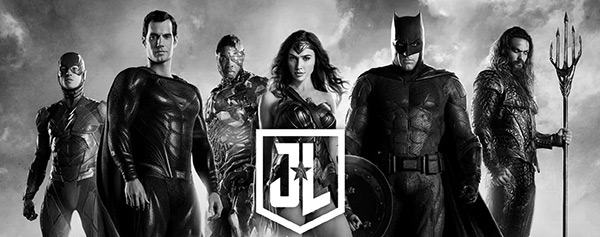
I can see why others are comparing its world building and mythical scope with Tolkienâs work. Youâve got the ancient Dark Lord who was defeated by an alliance of different races during an earlier age, and the powerful relics he left behind that are now being sought by his wraith-like acolytes. Thereâs also a creepy Lovecraftian vibe to the villains in this version of the film that was totally absent from the Whedon cut. I noticed some Arthurian allusions too. The most obvious is the round table Bruce describes when he and Alfred are discussing the renovation of stately Wayne Manor, but thereâs also the line âThe future has taken root in the presentâ spoken when Superman is resurrected which is taken from John Boormanâs Excalibur (1981). The movie feels epic and mythical to a degree no previous DC film has achieved.
Snyderâs Justice League legitimises some of the more elliptical plot points in Batman v Superman, and I wonder if some of the critics who trashed BvS might look more favourably on it if they were to re-watch the Ultimate Edition after seeing JL. I think some of them would. This filmâs certainly getting a more positive critical reception than BvS did. Perhaps more reviewers are starting to realise that not every superhero team-up movie has to follow The Avengers formula. One problem I had with the 2017 version of JL is that it came across as DCâs attempt at making an Avengers film, which I suspect is what Whedon and the studio intended. By contrast, Snyderâs JL doesnât feel like itâs trying to imitate anything. Itâs its own movie with its own identity, and all the better for it.

One of the filmâs biggest strengths is its deliberate pacing and structure. I can see why the runtime would be off-putting to some, and thatâs fair enough. But I liked how scenes where allowed to play out, and how character-centric moments were given time to breathe; to let the viewer soak in the atmosphere. The film doesnât breathlessly jump from one location to another the way some of the recent Star Wars films did. Instead it takes itâs time focussing on each plot point before moving on to the next. This allows for actual scenes, and not just rapid fire montages. When I heard the film was four hours long, I was concerned that the extra footage would be mostly CG action. In reality though, most of the deleted scenes are quiet character-driven moments that flesh out the protagonists and make us care more about whatâs at stake. The fact so many of these scenes were removed from the theatrical cut makes me realise just how badly edited the Whedon version was to begin with.

Ray Fisher's Victor Stone Cyborg is given a lot more screen time
Here Victor Stone and his father are treated like proper characters and Aquaman is portrayed with far more dignity. Steppenwolf also benefits enormously from the restoration of his deleted scenes. He actually has a personal motive this time, which I donât remember him having in the Whedon cut. Maybe he did have one there too, but if so it was less clearly stated. In general, the chemistry between the actors in Snyder's cut is more natural and less forced than in the theatrical release. In Whedonâs cut I felt like Cyborg and Aquaman were just tagging along for much of the movie, and Whedon's signature banter felt misplaced. In this version, however, each of the six protagonists is given their own story arc that fits neatly within the broader overarching narrative. The plot makes good use of each hero and feels cohesive in the way it interweaves their storylines. It was also nice to see Marc McClureâs scenes restored, since he was edited out of the theatrical version entirely. Affleck also looked a lot healthier and in better shape here than in Whedonâs version. You can tell his heart was in it more. And we finally got to see Darkseid in a live action movie! How cool is that?

Darkseid and DeSaad are prominent charcters now
The episodic chapter headings are a nice touch that help structure what might very easily have been a much messier film (see the theatrical cut for proof of that). Andrei Tarkovsky did the same thing with Andrei Rublev (1966), and I find it makes the film easier to revisit if you're not in the mood to watch the entire thing in one sitting. For my initial viewing, I watched Justice League in two sittings spread across one afternoon. But I think the next time I watch it Iâll probably do so over two nights, watching three chapters at a time. I expect the chapter breaks were inserted for that very reason, similar to the intermission you might get in a theatrical release. Itâs a smart editing choice.
On the negative side, I still donât like Millerâs take on the Flash. His fast-talking distractible characterisation is far more indebted to Peter Parker than to the serious and analytically-minded Barry Allen of the comics. He could maybe pass for the Bart Allen Impulse, but heâs no Barry. The back storyâs there, and so are the powers, but his personality is too far removed from the source material for my tastes. The movieâs CG effects are acceptable for the most part and a definite improvement over the theatrical cut, but I did notice one or two shots that were unconvincing. For example, those early shots of Lex talking with Steppenwolf in the water didnât look quite right. Much as I enjoyed seeing (SPOILER) Martian Hunter, (end SPOILER) his scenes felt tacked on to me. You could remove them entirely and they wouldn't affect the central plot one bit. The same is true of the final Knightmare sequence. In both cases, I expect these were elements Snyder would have preferred to keep for the next film, but used here because he feared he mightnât get a shot at a sequel. This is understandable. I think the scene between Lex and Deathstroke is the most organic place for the movie to end, but Iâm glad we finally got to see a proper scene between (SPOILER) Affleckâs Batman and Letoâs Joker. It was well acted and I thought Letoâs performance helped wash away the bad taste left by Suicide Squad. It's also the first time I've heard Batman tell the Joker he's going to kill him since the 1989 movie. (end SPOILER)
Overall I enjoyed it. Itâs superior to the Whedon cut in literally every way. Better direction, writing, acting, editing, music, action and cinematography. The plot is more layered, the characters are better developed and the pacing is better suited to the scope of the narrative. I thought it was a good film, and like I said before it might be my favourite DCEU movie so far. comments powered by Disqus
For many of us comic fans, the goal behind the shared cinematic DC universe was not only to allow the classic heroes to interact with one another on screen (that novelty wore off some time ago), but also to adapt the broader interplanetary mythology of the DC universe into a cinematic production.
Weâve seen that mythology translated into animation and live action TV, and WB tried giving it the movie treatment in the 2011 Green Lantern movie. But I feel like this is the first live action film to fully capture it on screen with an appropriately epic scale. This is, in essence, the storytelling destination that all the earlier DCEU movies were building up to. It might well be my favourite DCEU movie to date, as well as Snyderâs most accomplished film as a director.

I can see why others are comparing its world building and mythical scope with Tolkienâs work. Youâve got the ancient Dark Lord who was defeated by an alliance of different races during an earlier age, and the powerful relics he left behind that are now being sought by his wraith-like acolytes. Thereâs also a creepy Lovecraftian vibe to the villains in this version of the film that was totally absent from the Whedon cut. I noticed some Arthurian allusions too. The most obvious is the round table Bruce describes when he and Alfred are discussing the renovation of stately Wayne Manor, but thereâs also the line âThe future has taken root in the presentâ spoken when Superman is resurrected which is taken from John Boormanâs Excalibur (1981). The movie feels epic and mythical to a degree no previous DC film has achieved.
Snyderâs Justice League legitimises some of the more elliptical plot points in Batman v Superman, and I wonder if some of the critics who trashed BvS might look more favourably on it if they were to re-watch the Ultimate Edition after seeing JL. I think some of them would. This filmâs certainly getting a more positive critical reception than BvS did. Perhaps more reviewers are starting to realise that not every superhero team-up movie has to follow The Avengers formula. One problem I had with the 2017 version of JL is that it came across as DCâs attempt at making an Avengers film, which I suspect is what Whedon and the studio intended. By contrast, Snyderâs JL doesnât feel like itâs trying to imitate anything. Itâs its own movie with its own identity, and all the better for it.

One of the filmâs biggest strengths is its deliberate pacing and structure. I can see why the runtime would be off-putting to some, and thatâs fair enough. But I liked how scenes where allowed to play out, and how character-centric moments were given time to breathe; to let the viewer soak in the atmosphere. The film doesnât breathlessly jump from one location to another the way some of the recent Star Wars films did. Instead it takes itâs time focussing on each plot point before moving on to the next. This allows for actual scenes, and not just rapid fire montages. When I heard the film was four hours long, I was concerned that the extra footage would be mostly CG action. In reality though, most of the deleted scenes are quiet character-driven moments that flesh out the protagonists and make us care more about whatâs at stake. The fact so many of these scenes were removed from the theatrical cut makes me realise just how badly edited the Whedon version was to begin with.

Ray Fisher's Victor Stone Cyborg is given a lot more screen time
Here Victor Stone and his father are treated like proper characters and Aquaman is portrayed with far more dignity. Steppenwolf also benefits enormously from the restoration of his deleted scenes. He actually has a personal motive this time, which I donât remember him having in the Whedon cut. Maybe he did have one there too, but if so it was less clearly stated. In general, the chemistry between the actors in Snyder's cut is more natural and less forced than in the theatrical release. In Whedonâs cut I felt like Cyborg and Aquaman were just tagging along for much of the movie, and Whedon's signature banter felt misplaced. In this version, however, each of the six protagonists is given their own story arc that fits neatly within the broader overarching narrative. The plot makes good use of each hero and feels cohesive in the way it interweaves their storylines. It was also nice to see Marc McClureâs scenes restored, since he was edited out of the theatrical version entirely. Affleck also looked a lot healthier and in better shape here than in Whedonâs version. You can tell his heart was in it more. And we finally got to see Darkseid in a live action movie! How cool is that?

Darkseid and DeSaad are prominent charcters now
The episodic chapter headings are a nice touch that help structure what might very easily have been a much messier film (see the theatrical cut for proof of that). Andrei Tarkovsky did the same thing with Andrei Rublev (1966), and I find it makes the film easier to revisit if you're not in the mood to watch the entire thing in one sitting. For my initial viewing, I watched Justice League in two sittings spread across one afternoon. But I think the next time I watch it Iâll probably do so over two nights, watching three chapters at a time. I expect the chapter breaks were inserted for that very reason, similar to the intermission you might get in a theatrical release. Itâs a smart editing choice.
On the negative side, I still donât like Millerâs take on the Flash. His fast-talking distractible characterisation is far more indebted to Peter Parker than to the serious and analytically-minded Barry Allen of the comics. He could maybe pass for the Bart Allen Impulse, but heâs no Barry. The back storyâs there, and so are the powers, but his personality is too far removed from the source material for my tastes. The movieâs CG effects are acceptable for the most part and a definite improvement over the theatrical cut, but I did notice one or two shots that were unconvincing. For example, those early shots of Lex talking with Steppenwolf in the water didnât look quite right. Much as I enjoyed seeing (SPOILER) Martian Hunter, (end SPOILER) his scenes felt tacked on to me. You could remove them entirely and they wouldn't affect the central plot one bit. The same is true of the final Knightmare sequence. In both cases, I expect these were elements Snyder would have preferred to keep for the next film, but used here because he feared he mightnât get a shot at a sequel. This is understandable. I think the scene between Lex and Deathstroke is the most organic place for the movie to end, but Iâm glad we finally got to see a proper scene between (SPOILER) Affleckâs Batman and Letoâs Joker. It was well acted and I thought Letoâs performance helped wash away the bad taste left by Suicide Squad. It's also the first time I've heard Batman tell the Joker he's going to kill him since the 1989 movie. (end SPOILER)
Overall I enjoyed it. Itâs superior to the Whedon cut in literally every way. Better direction, writing, acting, editing, music, action and cinematography. The plot is more layered, the characters are better developed and the pacing is better suited to the scope of the narrative. I thought it was a good film, and like I said before it might be my favourite DCEU movie so far. comments powered by Disqus
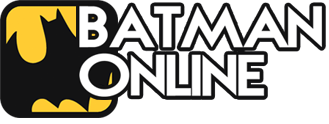
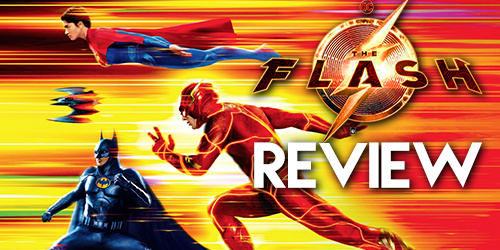
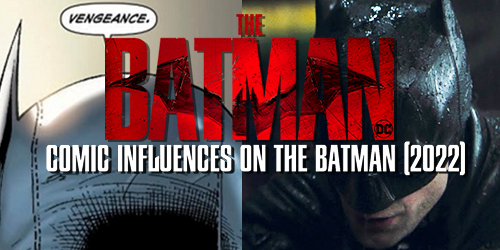
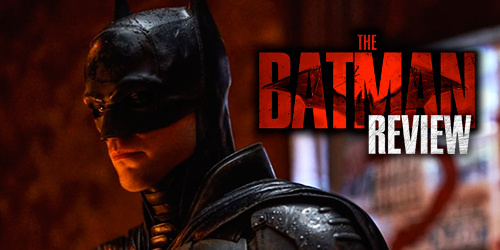
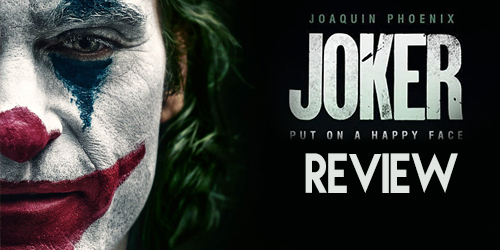
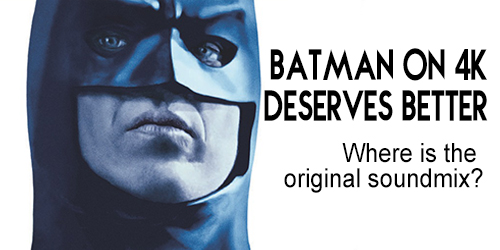
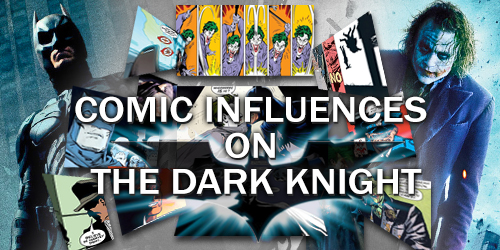
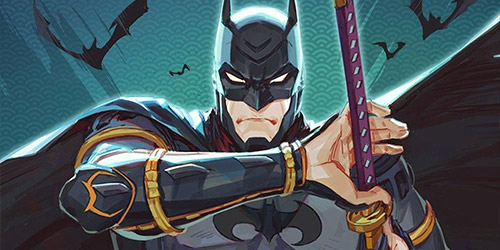
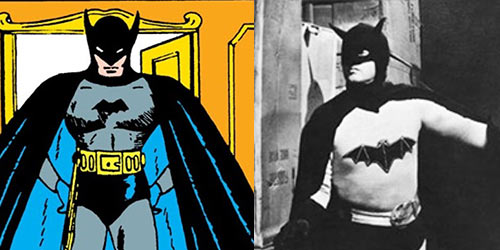
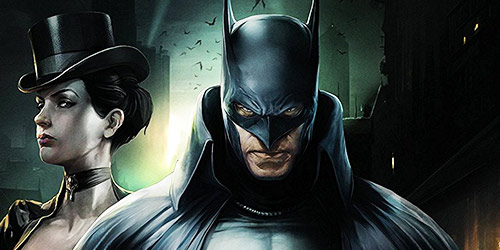
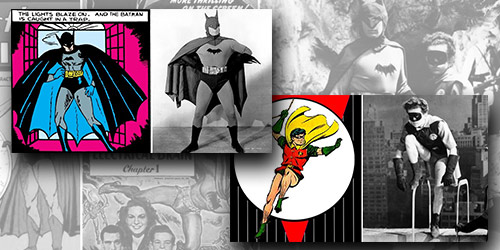
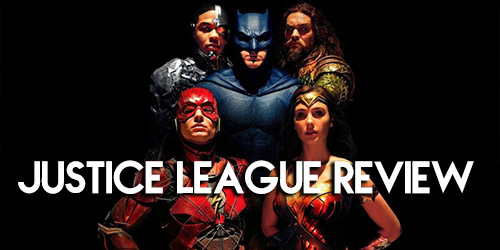

by The Joker
by Travesty
by The Joker
by The Joker
by The Joker
by Silver Nemesis
by The Dark Knight
by Silver Nemesis
by The Dark Knight
by The Dark Knight